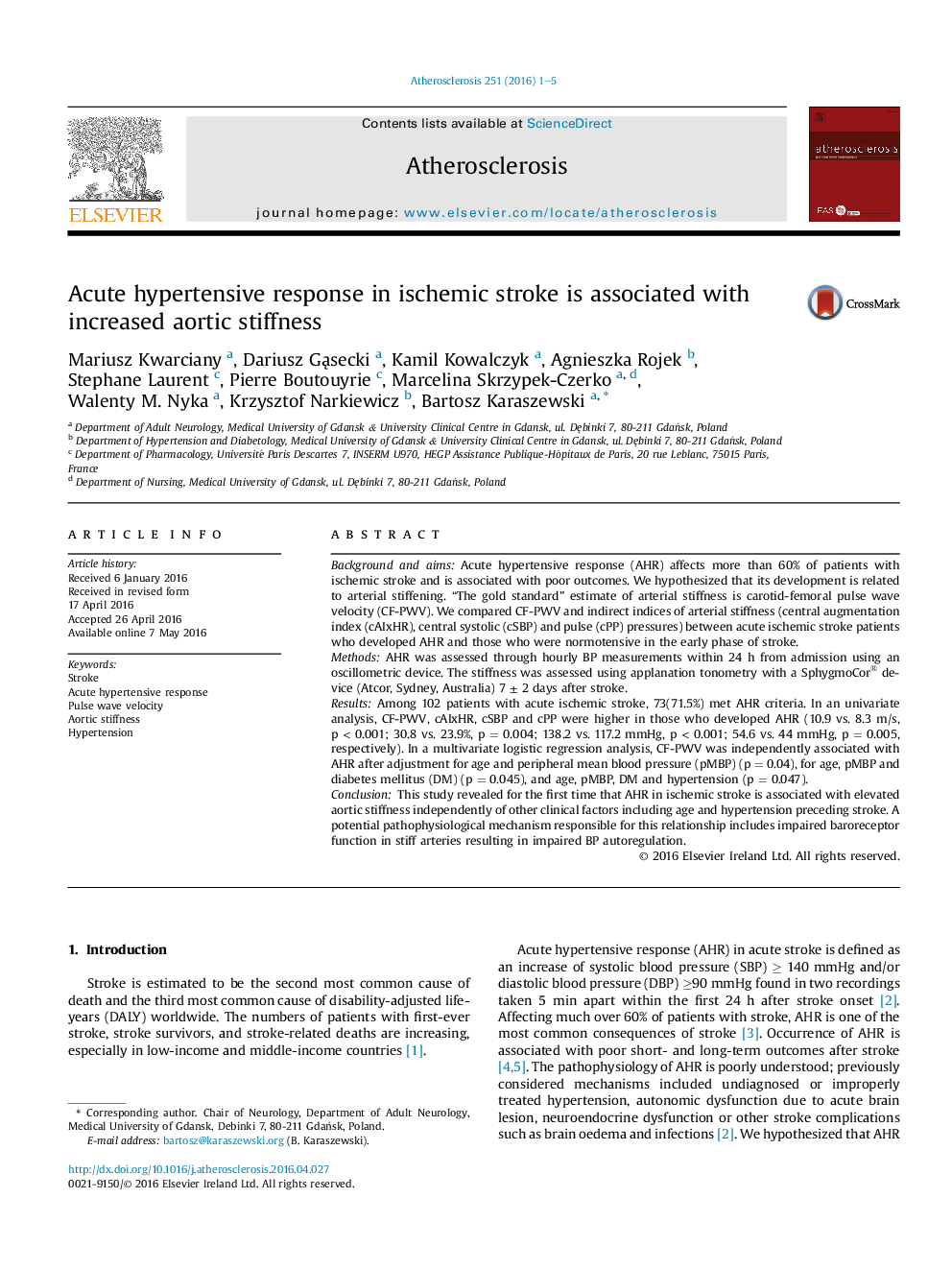| کد مقاله | کد نشریه | سال انتشار | مقاله انگلیسی | نسخه تمام متن |
|---|---|---|---|---|
| 5942614 | 1574714 | 2016 | 5 صفحه PDF | دانلود رایگان |
- Acute hypertensive response (AHR) in the early phase of ischemic stroke is associated with carotid-femoral pulse wave velocity, central augmentation index, central systolic and pulse pressures measured 7 ± 2 days after stroke independently of other clinical factors.
- Patients having elevated aortic stiffness are more likely to develop AHR in the early phase of stroke.
- Among potential pathophysiological mechanisms responsible for this relationship is impaired baroreceptor function in stiff arteries resulting in improper BP autoregulation.
Background and aimsAcute hypertensive response (AHR) affects more than 60% of patients with ischemic stroke and is associated with poor outcomes. We hypothesized that its development is related to arterial stiffening. “The gold standard” estimate of arterial stiffness is carotid-femoral pulse wave velocity (CF-PWV). We compared CF-PWV and indirect indices of arterial stiffness (central augmentation index (cAIxHR), central systolic (cSBP) and pulse (cPP) pressures) between acute ischemic stroke patients who developed AHR and those who were normotensive in the early phase of stroke.MethodsAHR was assessed through hourly BP measurements within 24 h from admission using an oscillometric device. The stiffness was assessed using applanation tonometry with a SphygmoCor® device (Atcor, Sydney, Australia) 7 ± 2 days after stroke.ResultsAmong 102 patients with acute ischemic stroke, 73(71.5%) met AHR criteria. In an univariate analysis, CF-PWV, cAIxHR, cSBP and cPP were higher in those who developed AHR (10.9 vs. 8.3 m/s, p < 0.001; 30.8 vs. 23.9%, p = 0.004; 138.2 vs. 117.2 mmHg, p < 0.001; 54.6 vs. 44 mmHg, p = 0.005, respectively). In a multivariate logistic regression analysis, CF-PWV was independently associated with AHR after adjustment for age and peripheral mean blood pressure (pMBP) (p = 0.04), for age, pMBP and diabetes mellitus (DM) (p = 0.045), and age, pMBP, DM and hypertension (p = 0.047).ConclusionThis study revealed for the first time that AHR in ischemic stroke is associated with elevated aortic stiffness independently of other clinical factors including age and hypertension preceding stroke. A potential pathophysiological mechanism responsible for this relationship includes impaired baroreceptor function in stiff arteries resulting in impaired BP autoregulation.
Journal: Atherosclerosis - Volume 251, August 2016, Pages 1-5
